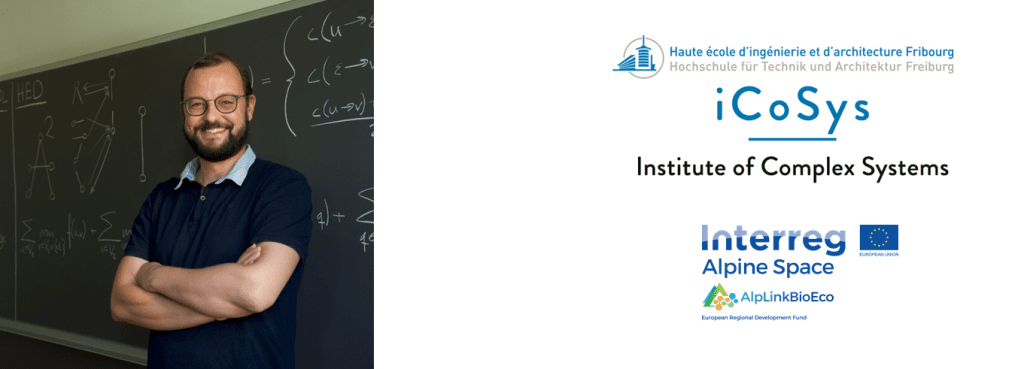
Mr Fischer, you are the decisive brain behind the development of the “Value Chain Generator” in the Interreg project AlpLinkBioEco *. Can this software build real value chains, as the name suggests?
Yes indeed, provided that the software can access high-quality data. The Value Chain Generator is based on the fact that we know and can link specific actors in the bioeconomy. The central question is: “What exactly is this actor doing?”. In order to describe the fields of activity of an actor, we are using NACE-Codes („Nomenclature statistique des activités économiques dans la Communauté européenne“). Furthermore, we describe the various activities of an actor using natural language: ‘Which inputs are transformed into which outputs with wich processes?’. On the one hand, the software enables individual actors to be linked to value chains and, on the other hand, the search for similar actors at a specific node in the value chain. In doing so, algorithms are used that can handle natural language. AlpLinkBioEco has succeeded in finding several intra-regional and inter-regional ‘biolinks’ in the Alpine reigon and implementing them in practice.
That sounds like the ideal tool for companies looking for ideas for business developments and collaborations that want to make the leap to more organic! But how exactly can companies make use of the software?
Yes,exactly. The Value Chain Generator is intended for companies that are looking for new ideas in the bioeconomy. In its current version, the software is mainly aimed at cluster managers as users who can develop new value chains in cooperation with companies in their region. This is already possible today for the members of Chemie-Cluster Bayern, as it is a partner in this project.
The project and the Interreg EU-funding will end in April 2021. How will you make sure that the tool ‘Value Chain Generator’ and the associated database can still be used afterwards?
After the end of the project, we provide all project partners with the data of their own region as well as the software source code under a free software license. This means that the Value Chain Generator can subsequently be used and further developed without restrictions. In doing so we hope that long-term consortia will be formed in the Alpine region that are ready to exchange data and can generate new value chains with the help of the software. In order to give interested parties an insight into the tool, we will also provide a web-based demo version with anonymized actors at our research institute.
Andreas Fischer is Professor of Computer Science at the Institute for Complex Systems (iCoSys) at the Freiburg University of Technology and Architecture, University of Applied Sciences Western Switzerland (HES_SO), where he conducts research in the field of pattern recognition and document analysis.
*More about the project AlpLinkBioEco: https://www.alpine-space.eu/projects/alplinkbioeco/en/home